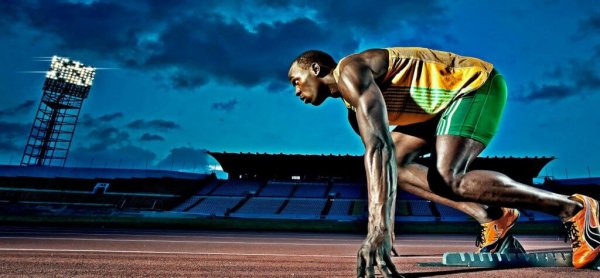What Psychological Factors Help Improve Sports Performance?

High-performance athletes claim that 90% of their success comes from mental training and ability. In professional sports, there aren’t huge differences between athletes in terms of potential, training, or physical ability. The determining factors of success, therefore, lie in the psychological realm.
Over the years, we’ve seen increased interest in the psychological aspect of sports. This increased interest prompted psychology and sports professionals to ask the following question: what psychological variables determine sports performance?
It’s clear that mental factors affect sports performance. This is true for elite athletes as well as anyone participating in sports. Today we have evidence to back up this idea. People practicing any physical sport, whether they’re professionals or amateurs, can benefit from developing certain psychological tools. The tools can help increase their capacity and sport performance.
“For life’s battles don’t always go to the stronger woman or man, but, sooner or later, the person who wins is the one that thinks they can.”
-Arnold Palmer-

What psychological factors improve sports performance?
We all know that regular exercise directly benefits our health. Studies also demonstrate time and time again that exercise is good for our mental health, contributing to improved attention span, teamwork, and self-esteem.
The psychological factors of sports and exercise that most affect performance are: self-confidence, motivation, emotional control, and concentration.
- Motivation: This is important for any area you want to optimize your performance in. It is especially important in sports. Think about athletes who experience constant ups-and-downs, wins and losses. In their case, intrinsic motivation and love for what they do is usually what helps them recover after a bad pass, a terrible throw, or a much lower score than they were expecting.
- Concentration: Athletes also need to have the ability to concentrate intensely. All actions, even the most simple or intuitive ones, require concentration. A poorly executed move can result in a loss or an injury. It can ruin months of preparation. That’s why even an athlete with mediocre training is not usually distracted.
- Emotional control: Doing mental training exercises that help you control your emotions and doubts can make the difference between success and failure. When poor emotional control affects an athlete’s performance, it is usually because she let her emotions affect her concentration.
- Self-confidence: Lastly, confidence in your ability to successfully complete a task is an essential condition for victory.
“You can motivate by fear, and you can motivate by reward. But both those methods are only temporary. The only lasting thing is self motivation.”
-Homer Rice-

Mental techniques for improving sports performance
Being a professional athlete involves a high degree of emotional involvement. First, athletes have to identify and analyze their strengths and weaknesses. Then they can use personalized techniques to enhance performance and confidence. If they’re not personalized, then they could be counterproductive.
The techniques that athletes use the most to enhance their performance are:
- Attention control: both internal and external attention. Internal attention is when an athlete focuses on things happening in her own body (thoughts, internal dialogue, feelings, and movements). External attention is when an athlete focuses on things outside of her own body.
- Setting goals: this helps athletes get an overall vision of the work they have to do. They can also visualize what they have to achieve to get to their final goals.
- Self-instructions: these are messages or short affirmations that we tell ourselves to help with motivation or concentration. It’s important to use rational, positive, logical, and realistic affirmations.
- Relaxation: a relaxation technique is any method, procedure, or activity that helps reduce physical and/or mental tension. It is meant to lower stress and anxiety and replace them with peace.
- Mental representation: mental representations are symbolic ways of reproducing reality. Visualization is extremely powerful for athletes and non-athletes alike.
Finally, it’s important to remember that sports (especially high-level sports) involve a lot of pain and suffering. And it’s not just the pain that the exercise itself produces, but everything that comes from it indirectly too.
As a result, sports are powerful teachers of resilience. Many of the psychological techniques that athletes use are ones we can use in other highly competitive and highly demanding contexts.
“I hated every minute of training, but I said, ‘Don’t quit. Suffer now and live the rest of your life as a champion.”
-Muhammad Ali, boxing world champion-
This text is provided for informational purposes only and does not replace consultation with a professional. If in doubt, consult your specialist.








